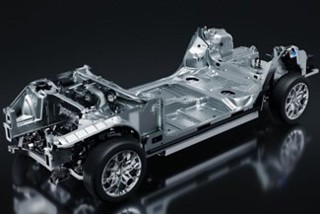DaimlerChrysler has branded the European Commission's findings that it broke European competition rules “groundless” and said it will appeal against a 72m euro fine imposed today.
In a statement issued this afternoon from DaimlerChrysler's Stuttgart headquarters said: “The European Commission dropped most of the charges made in 1999, particularly the serious allegation that DaimlerChrysler has an 'overall strategy' to obstruct cross-border sales of Mercedes passenger cars to consumers. However, DaimlerChrysler feels that the few remaining accusations are also groundless.
“The EC's decision is especially surprising in view of the fact that Mercedes has for many years played a pioneering role in harmonizing prices, thus contributing to European integration.
“DaimlerChrysler will appeal the decision of the European Commission.”
Our original story
The European Commission has fined DaimlerChrysler 71.83m euros (£45m), for three infringements of its competition laws.
EU Competition Commissioner Mario Monti said: “A new car is an expensive purchase and consumers pay attention to prices. The Commission is determined to ensure that they benefit from competition at retail level and get a good deal. Consumers strongly and rightfully criticise the functioning of the Single Market if they are unable to find a official distributor who is willing to supply them or if they are discriminated against in relation to national customers.
“Our investigation has also shown once more that the car manufacturers can largely control their distributors and punish those whose commercial behaviour they dislike.
“This is an area where the law is perfectly clear. Practices like the ones that DaimlerChrysler indulged in are therefore unacceptable and must be reprimanded severely .”
The Commission identified three types of infringements of the EC competition rules. The first one consists of measures by DaimlerChrysler that constitute obstacles to parallel trade. The company was found to have instructed German dealers not to sell cars outside their respective territory. In addition, the car maker instructed its distributors ask for a deposit of 15% for DaimlerChrysler when ordering a car in Germany. This was not requiered from German customers.
In a second infringement, DaimlerChrysler limited in Germany and Spain the sale of cars by Mercedes agents or dealers to independent leasing companies as long as these companies had not yet found customers for the cars concerned. “As a consequence, it restricted the competition between its own leasing companies and independent leasing companies because the latter could not put cars on stock or benefit from rebates which are granted to all fleet owners,” the EC said. Consequently, the independent leasing companies were not able to pass on such favourable conditions, in particular concerning prices and the availability of cars, to their clients.
Commission regulations call for leasing companies to be treated in the same way as final customers, to which distributors are completely free to sell new cars, as long as the lessee has no right to purchase the leased vehicle before the end of the leasing contract.
Finally, DaimlerChrysler participated in a price fixing agreement in Belgium with the aim of limiting the rebates granted by its subsidiary Mercedes Belgium and the other Belgian Mercedes dealers to consumers. A "ghost shopper" investigated the sales policies of the dealers and DaimlerChrysler agreed to enforce the agreement by reducing the supply to dealers that granted higher rebates than the 3% that had been agreed. “This amounts to resale price maintenance, a practice that was already sanctioned by the Commission last June in its decision against Volkswagen”, an EC statement reads.
Volkswagen was fined by the EC 102m euros in 1998, later reduced to 90m, for anti-competitive practises.

















Login to comment
Comments
No comments have been made yet.